After three years, thousands of surveys, hundreds of meetings and dozens of international summits, the United Nations on September 25 approved the Sustainable Development Goals (SDGs). Their intent is to inspire and propel countless global efforts to improve life for all 7 billion-plus inhabitants of this planet by the year 2030.
The SDGs replace the recently expired and fairly successful Millennium Development Goals (MDGs), which were adopted in 2000. The original eight MDGs were fairly straightforward and tackled big problems facing the world: poverty, hunger, lack of education, gender equality, child mortality, maternal health, diseases such as HIV-AIDS and malaria, environmental sustainability, and getting global entities to work together better.
Like any successful movie-franchise sequel, the operative word is “more.” If eight MDGs worked to a certain extent, then 17 new SDGs ought to be even better, right?
This is where the critics start sharpening their pencils (or daggers). Many of them say the problem with the SDGs is too many goals and a lack of focus – much like the way directors of movie sequels go for more characters, bigger set pieces and louder explosions, yet all with less effect than the original.
We have 15 years to see who’s correct. In the meantime, shared goals and common targets still do have great influence. They give people and organizations something to rally around and a common vocabulary about what needs to be done.
Because the UN, World Health Organization and other major players endorse the SDGs, they also provide organizations such as Compassion with detailed data that define challenges we face and provide annual reports measuring progress worldwide.
This is especially helpful because of how many of the SDGs directly parallel what Compassion does. When it comes to goals and implementation, though, we sometimes take a different approach. Here are the SDGs that most closely match our work, along with ways they overlap and differ:
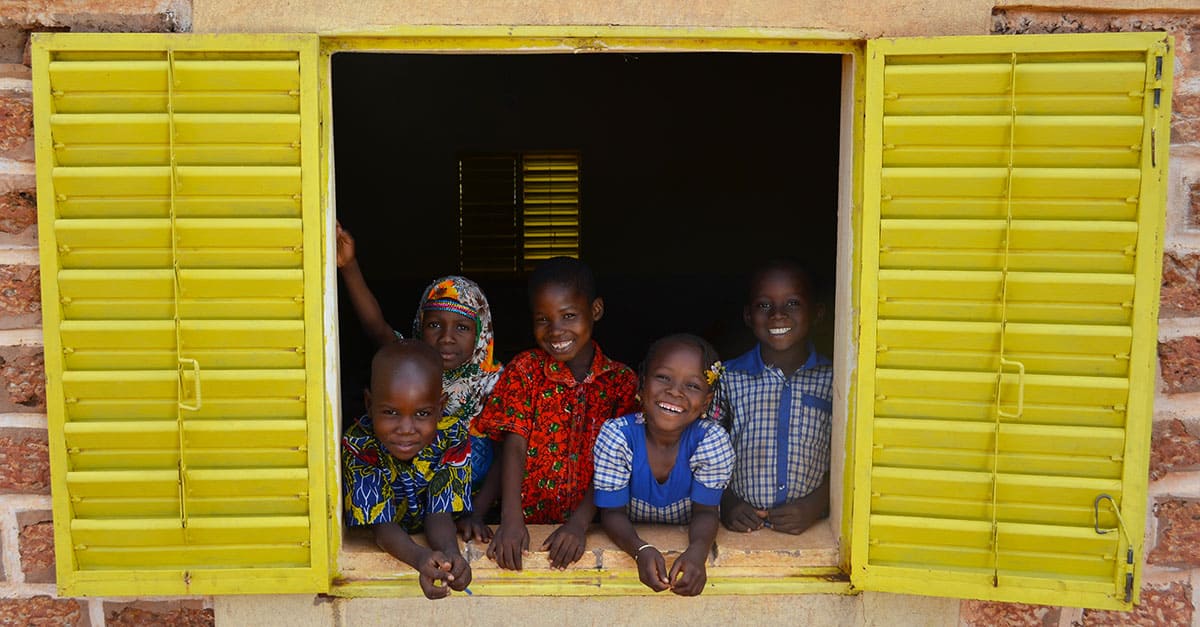
SDG 1: End poverty in all its forms everywhere
Two superlatives in a seven-word sentence: There’s the first reason some are saying the SDGs are overly broad. Compassion’s goal is audacious as well, but focused on children both because God commands it repeatedly and because it makes the most sense.
Our mission is to release children from poverty in Jesus’ name. We achieve this by helping children develop holistically, focusing on four key areas of development: physical, socio-emotional, intellectual and spiritual. We believe (and independent studies have proven) that child sponsorship is one of the most effective ways to defeat poverty.
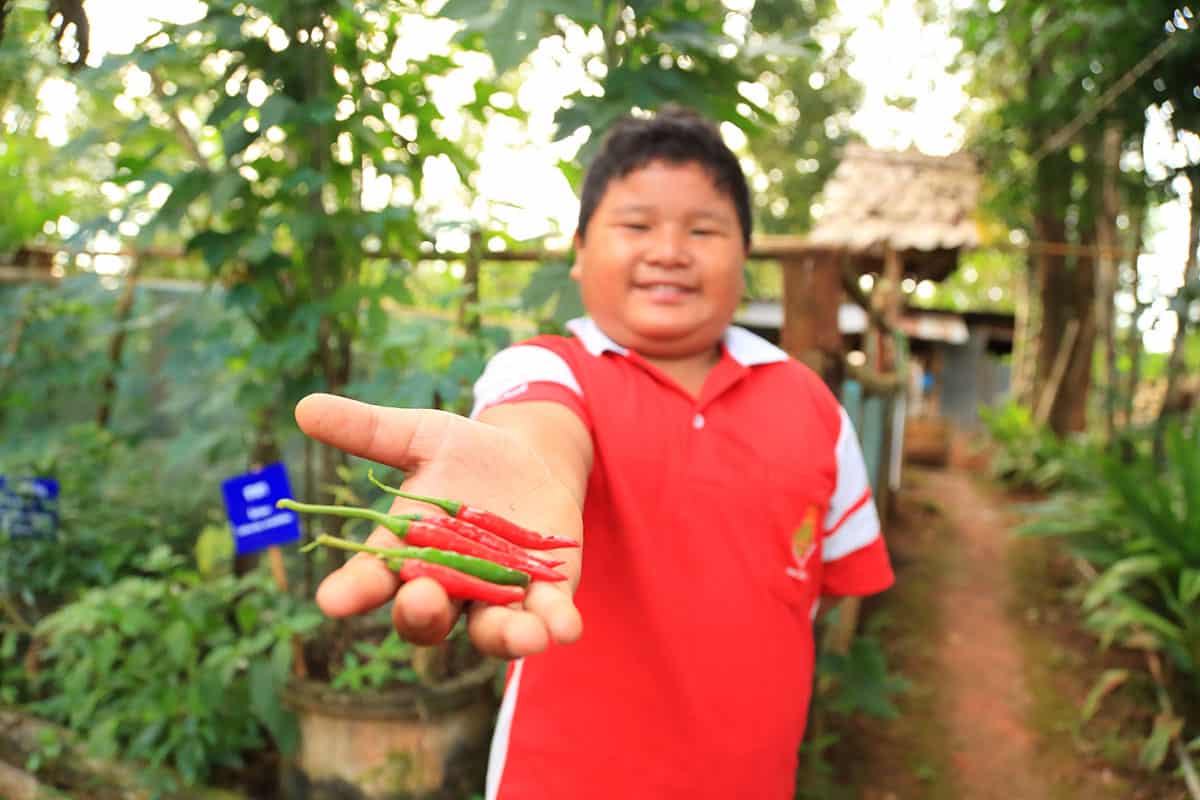
SDG 2: End hunger, achieve food security and improved nutrition and promote sustainable agriculture
Compassion is not a food-relief organization, but in the course of ministering to children holistically through local churches, food security and hunger often must be addressed in order for children to develop and grow.
Compassion Survival ensures mothers and their babies have proper nutrition; Complementary Interventions help families grow crops for themselves, raise livestock and receive emergency feeding for children who are malnourished, and much more.
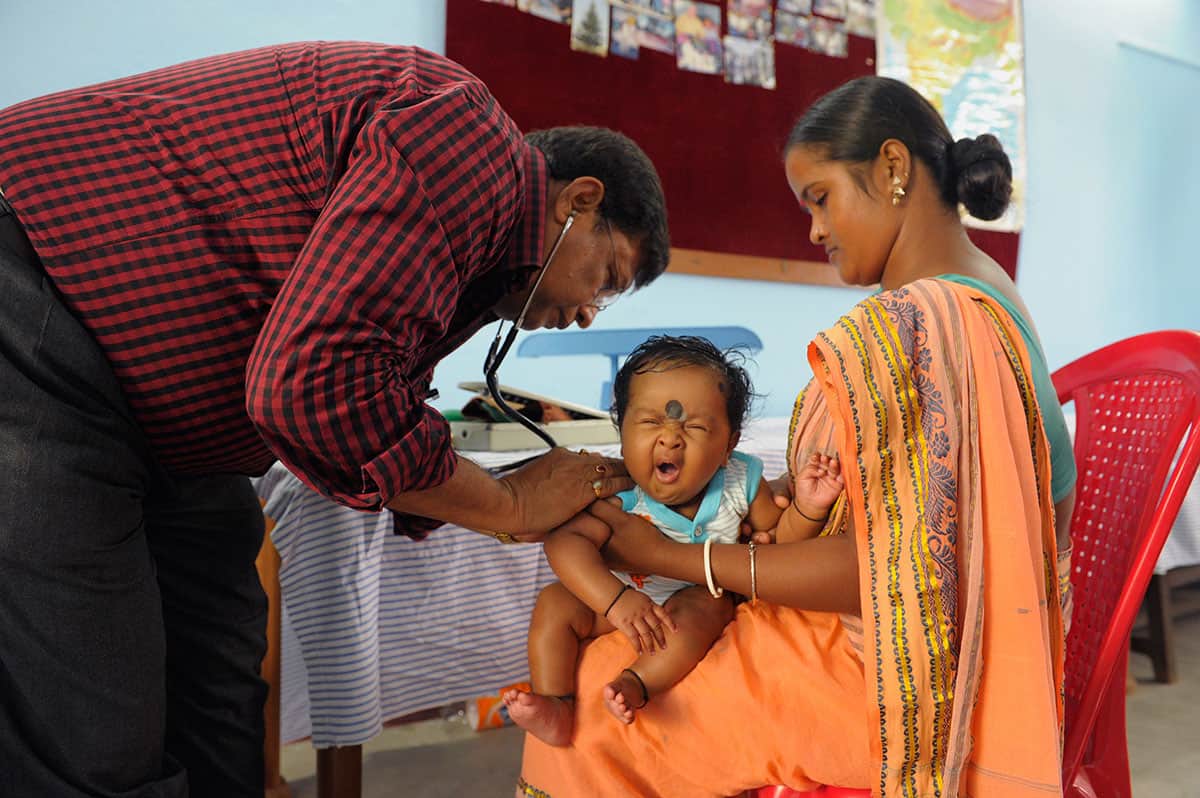
SDG 3: Ensure healthy lives and promote wellbeing for all at all ages
Compassion’s approach to ensuring more and more adults live healthy lives is to start when they’re children. Our emphasis is on meeting the needs of the poorest of the poor when they’re most vulnerable.
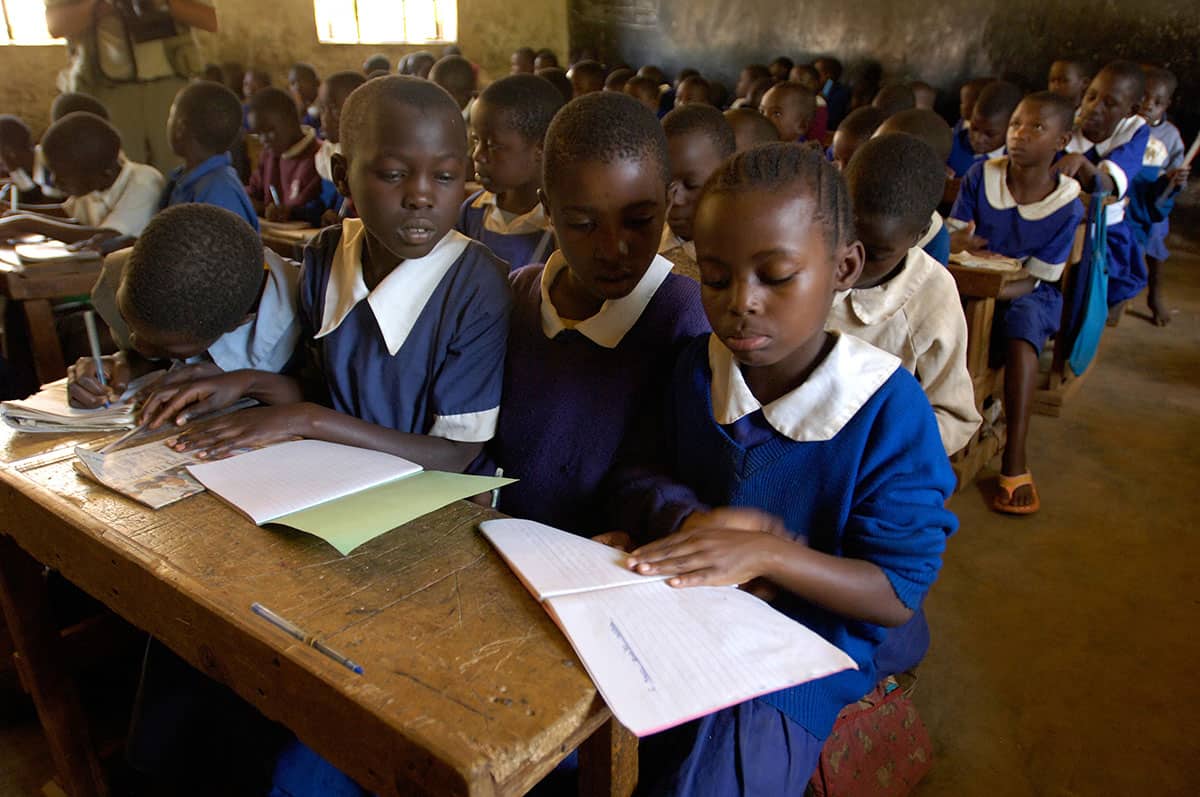
SDG 4: Ensure inclusive and equitable quality education and promote lifelong learning opportunities for all
Education is a cornerstone of the Child Sponsorship Program: All registered boys and girls of primary school age are required to attend school, and Compassion’s partner churches, with the support of sponsors and donors, provide these children with tutoring, school fees, uniforms, libraries with books and computers, and other resources, depending on what is needed.
We also provide modern, Bible-based curriculum that is customized for relevance in each country where we serve. For teens, vocational training is also offered, sometimes in conjunction with local organizations and sometimes directly through the church. Our goal is to ensure every young adult graduating from a Compassion center does so with a locally marketable job skill of his or her choosing.
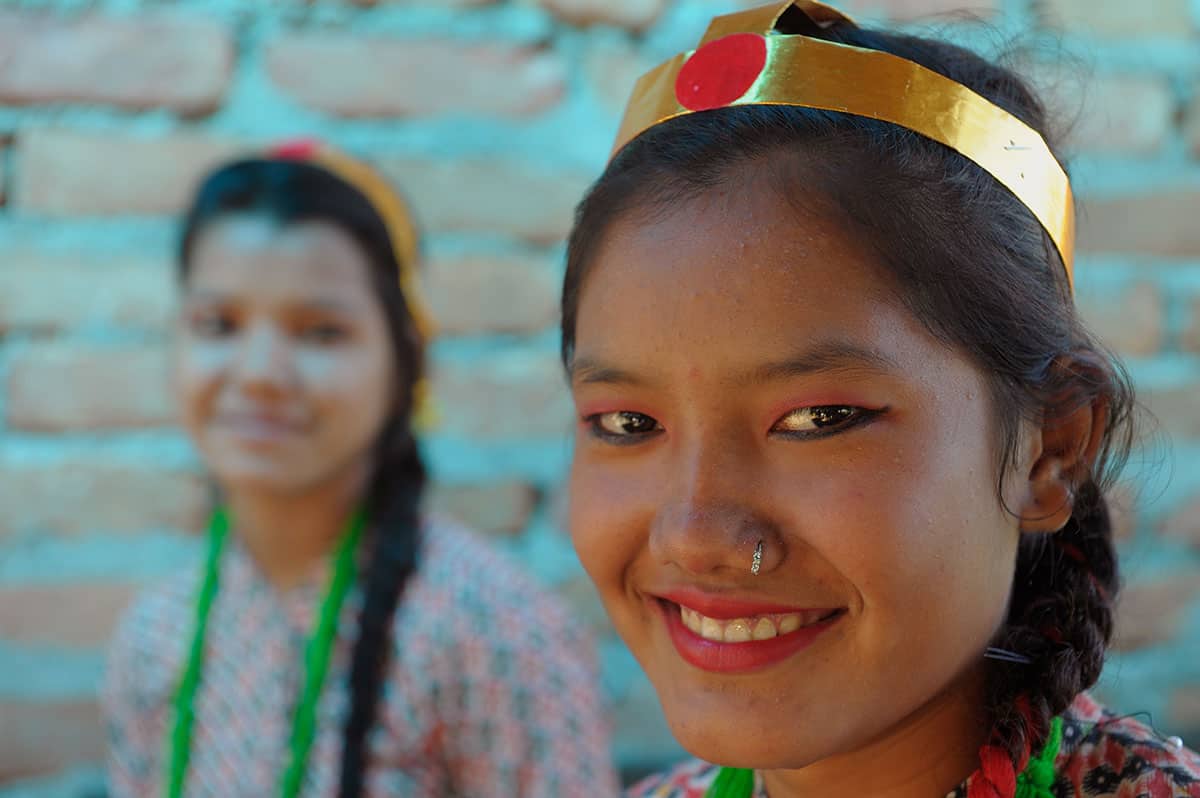
SDG 5: Achieve gender equality and empower all women and girls
Boys and girls receive equal treatment and opportunities throughout their time at a Compassion-partner child development center. But we also know that in some parts of the world, that is not enough.
A crucial aspect of our water, sanitation and hygiene (WaSH) efforts, is providing teenage girls with supplies, safety, privacy and dignity so their transition into puberty does not result in them having to miss school a few days every month, fall behind in school and eventually drop out just because they are becoming women.
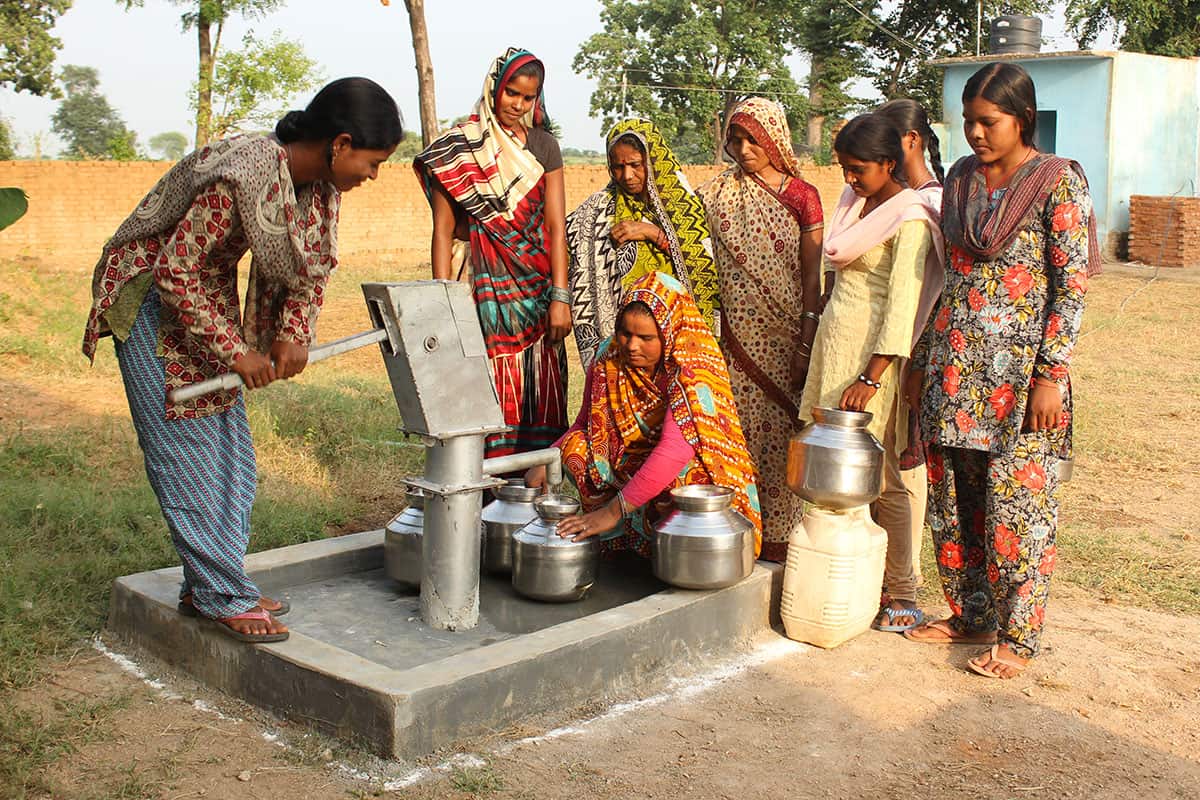
SDG 6: Ensure availability and sustainable management of water and sanitation for all
Every year, Compassion field offices identify centers that have critical needs for WaSH interventions and write proposals that donors in the US and other high-income countries fund to drill wells, install water storage tanks and plumbing, build bathrooms, teach children and their families about the need for safe water, provide in-home water purification systems, and much more. We know safe water is the key to avoiding dozens of deadly diseases and ensuring young children can grow up healthy.
We also ensure that every well and water system can be sustained locally: If a part breaks, they will know how to fix or replace it and will train others to keep equipment running. For this reason, our WaSH interventions continue to operate for durations and at rates far exceeding the international average for NGO water projects.
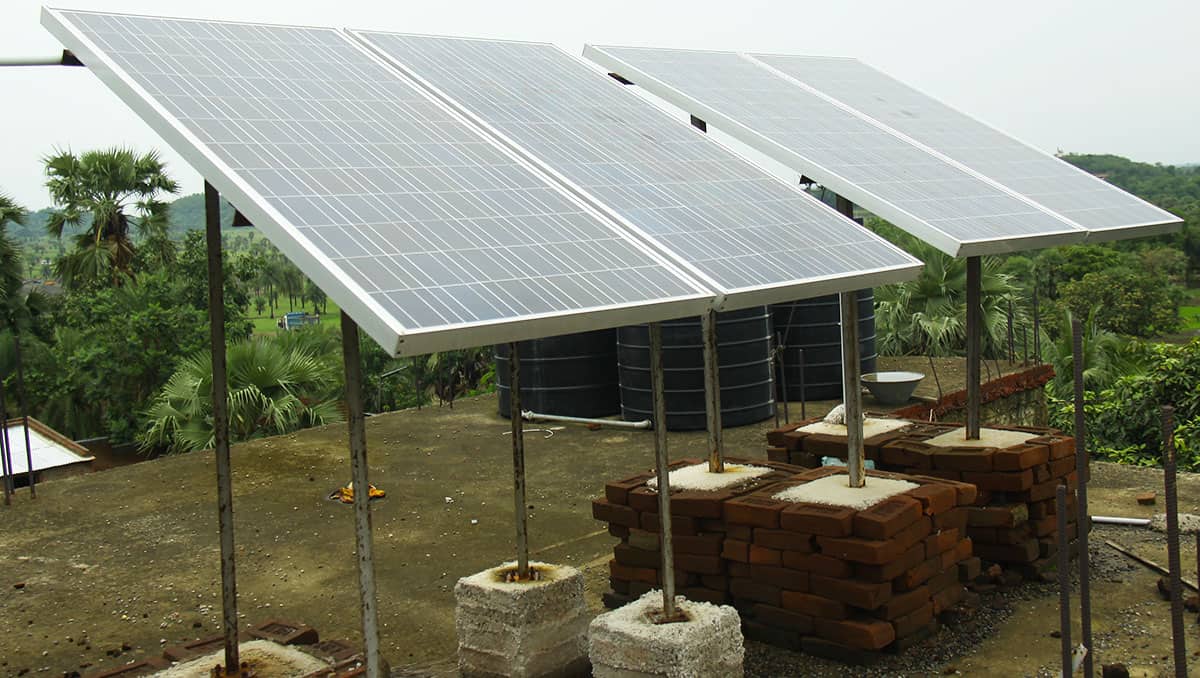
SDG 7: Ensure access to affordable, reliable, sustainable and modern energy for all
Like so many other SDGs, this one isn’t a direct aspect of Compassion’s work, but there are thousands of people all over the world – especially in rural areas of poor countries – that have solar-generated power because of interventions provided through Compassion.
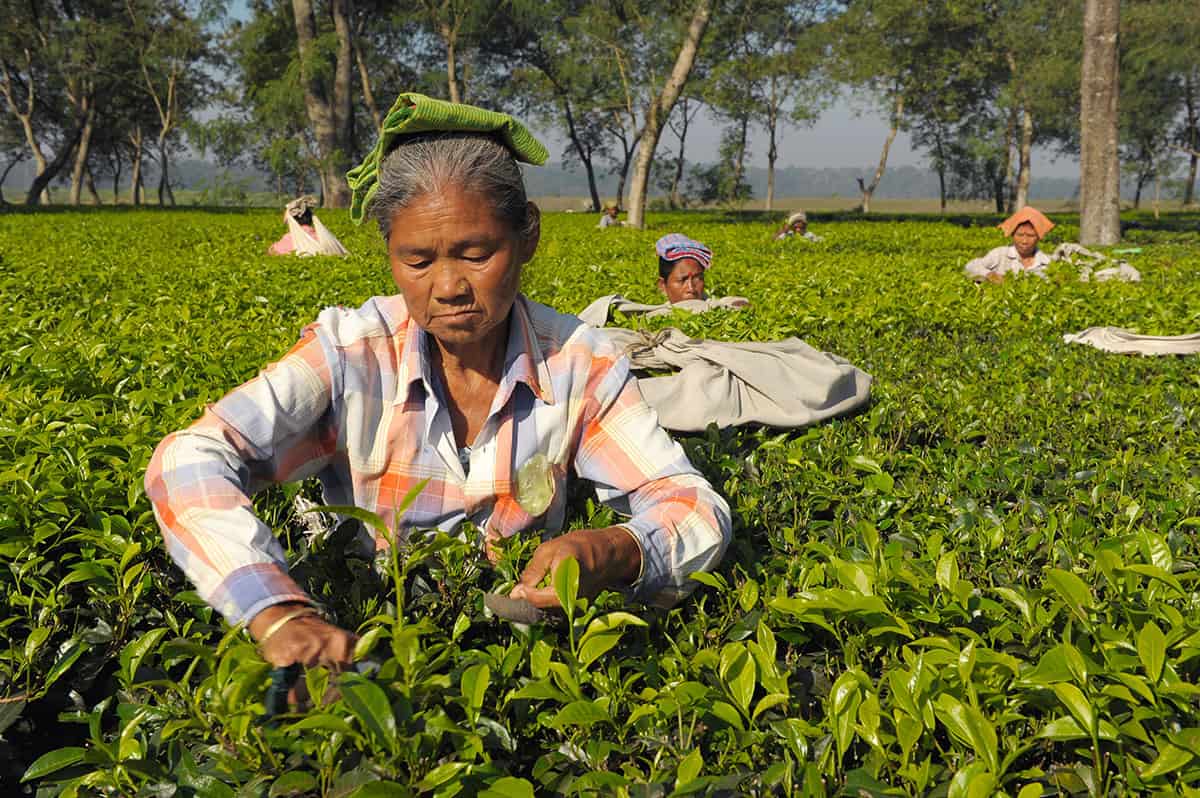
SDG 8: Promote sustained, inclusive and sustainable economic growth, full and productive employment and decent work for all
Here, too, Compassion’s indirect influence boosts and sometimes even creates local economies in far-off locales. For instance, projects that provide greenhouses, cooperative farms and fish farms introduce the opportunity for families to grow valuable, marketable and sustainable food businesses that raise the standard of living for their entire village.
Our partnership with local churches covers other goals as well, such as SDG 10: “Reduce inequality within and among countries” and SDG 16: “Promote peaceful and inclusive societies for sustainable development, provide access to justice for all and build effective, accountable and inclusive institutions at all levels.”
We believe the Church is God’s plan for redeeming the world; there is no Plan B. This is why we partner exclusively with local churches in developing countries. These partners impart equality and peace in their communities because they follow Jesus who came to give equality and peace to all.
So while we can get on board with the laudable ideals of most of the SDGs, we also know that God’s plans are far above any that humans can dream up, no matter how many people worked together to write them or how many years were spent arguing over them.
Lofty goals can be great, but for Compassion they must be Christ-centered, child-focused and church-based because we see evidence of how well that works every day.

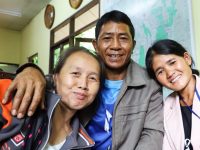
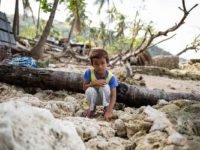

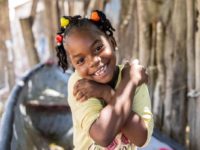


4 Comments |Add a comment
Am Peter Kasolo Okocha and so pleased to read this article and it find me as the Director Swengere Foundation Uganda working in the communities of Busoga to to see the we can improve and empower people to achieve the SDGs but we still need to pattern with more people and organizations, please share with us more possibilities of getting patterns on board.
Hello, Peter! Thank you for reaching out to us. If you are interested in having your Foundation potentially partner with Compassion, please send us an email to [email protected]. We look forward to hearing from you!
Hello madam,
We are Mr.David Pradhan and Mrs.Usharani pradhan. Yesterday we were sent you a message in your blog and thanks for your positive reply. We very much thank full to you for heartily understanding our desire. So that may GOD bless you richly. The children that we mentioned our last message,are live at near Berhampur town, Dist-: Ganjam, State-: Odisha. In here 5-6 villages and 40-50 children below nine year’s old.(If you want we will sent you the details of each and every children for the registration in to your program.) They have no education opportunity and also have no proper health care. We want to take their spiritual,educational,health and nutritional care, just through your organization’s help. So please give us a day care center project and save the God’s children’s future.
Mr. David Pradhan
Mrs. Usharani Pradhan
(We request you, can you please give us your organization’s any contact number,Thanks.)
Hi David! I’m glad you received our email. I’m going to email you once more with additional details regarding the children you’re seeking assistance for.